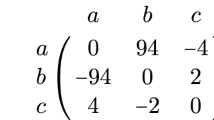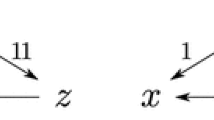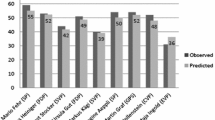Summary.
The pairwise lottery system is a multiple round voting procedure which chooses by lot a winner from a pair of alternatives to advance to the next round where in each round the odds of selection are based on each alternative’s majority rule votes. We develop a framework for determining the asymptotic relative likelihood of the lottery selecting in the final round the Borda winner, Condorcet winner, and Condorcet loser for the three alternative case. We also show the procedure is equivalent to a Borda lottery when only a single round of voting is conducted. Finally, we present an alternative voting rule which yields the same winning probabilities as the pairwise lottery in the limiting case as the number of rounds of the pairwise lottery becomes large.
Similar content being viewed by others
Author information
Authors and Affiliations
Corresponding author
Additional information
Received: 5 June 2003, Revised: 17 June 2004,
JEL Classification Numbers:
D71.
Correspondence to: Jac C. Heckelman
We thank Keith Dougherty and Andrew Yates for their comments.
Rights and permissions
About this article
Cite this article
Chen, F.H., Heckelman, J.C. Winning probabilities in a pairwise lottery system with three alternatives. Economic Theory 26, 607–617 (2005). https://doi.org/10.1007/s00199-004-0539-8
Issue Date:
DOI: https://doi.org/10.1007/s00199-004-0539-8




